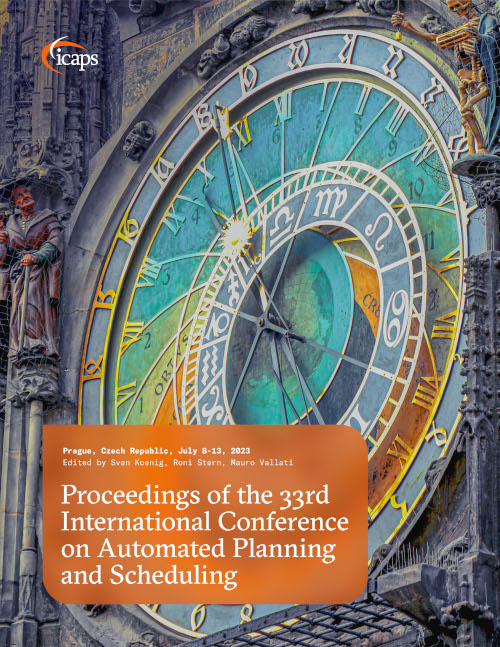A Planning Approach to Repair Domains with Incomplete Action Effects
DOI:
https://doi.org/10.1609/icaps.v33i1.27190Keywords:
Classical planning techniques and analysis, Knowledge acquisition and engineering for planning and scheduling, Knowledge representation for planning and scheduling, Applications and case studies of plannin and scheduling techniquesAbstract
Automated planning is a problem solving technique for a wide range of scenarios and goals, which typically involves the creation of domain and problem files in formal languages. However, producing complete model descriptions can be challenging and time-consuming, especially for non-experts. Although many tools have been developed to support file editing, mistakes can still be made, such as incomplete or improper specification of the initial state or the set of actions. These errors often result in unsolvable tasks for planners, making it impossible to generate a plan. Explaining the absence of a solution in such cases is essential to support humans in the development of automated planning tasks. In this paper, we introduce a novel approach to repair planning models where the effects of some actions are incomplete, without further information from the user side. We propose a compilation of the unsolvable task to a new extended planning task, in which new actions are permitted to insert possible missing effects. The solution is a plan that achieves the goals of the original problem while also alerting users of the modifications made to do so. Experimental results demonstrate that this approach can effectively repair incomplete planning domains.Downloads
Published
2023-07-01
How to Cite
Gragera, A., Fuentetaja, R., García-Olaya, Ángel, & Fernández, F. (2023). A Planning Approach to Repair Domains with Incomplete Action Effects. Proceedings of the International Conference on Automated Planning and Scheduling, 33(1), 153-161. https://doi.org/10.1609/icaps.v33i1.27190

